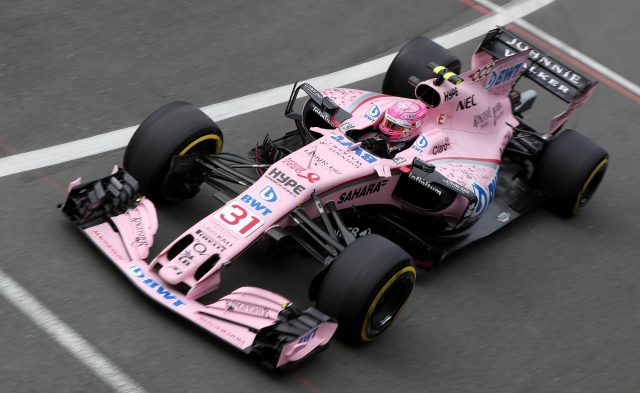A failing airline run by an Indian tycoon wanted over fraud convinced banks to authorise vast loans by claiming it would soon be profitable, a court has heard.
Entrepreneur Vijay Mallya, chairman of the UB Group and co-owner of Silverstone-based Sahara Force India F1 team, is facing extradition to his home country after being arrested in the UK.
In 2009 the group had set about hunting corporate loans totalling 2,000 crore rupees (equivalent to almost £230 million) from a selection of banks, including two loans worth 900 crore rupee from the country’s IDBI bank.
Mark Summers, representing the Indian government, told the court that Kingfisher had assured the banks that it had expected to be profitable by 2011.
The loans would be used to pay off “critical obligations” to creditors, which the Central Bank of India had determined “urgently required repayment”, the court was told.
A letter sent to IDBI in October 2009 disclosed it was making “huge losses”, but offered security by pointing to the brand value of parent company UB Group – 3,500 crore rupees (around £402 million) – alongside the ability to sell aircraft and promises there would be additional investment.
Mr Summers said: “It (Kingfisher) was an airline in trouble at this stage, seeking financial assistance from a large number of banks and a large amount of money.
“It was making losses, as we have seen in the letter, it was foreseeing that it would emerge as profitable in the relatively near future.”
He added: “The bank is in a position to sanction loans knowing it (Kingfisher) is going to start making profit from 2011.”
Mr Summers told the court that Kingfisher Airlines attempted later to allay concern by saying its failure to meet growth forecasts was down to the “high cost of operations” including engine failures.
The Indian drinks and aviation magnate was arrested in April by the Metropolitan Police’s extradition unit on behalf of authorities in India, where he is wanted in connection with money laundering and high value bank demands.
India’s Enforcement Directorate has been gathering evidence as part of its investigation into the tycoon’s debts, totalling £977 million, linked to Mr Mallya’s now-defunct airline Kingfisher.
He sold off his drinks firm United Spirits to Diageo in 2013 in order to prop up the airline, which went bust shortly after.
Indian investigators said last year that Mr Mallya had not been co-operating and had ignored their summons to give evidence three times.

The start of extradition proceedings were scuppered earlier by a fire alarm – forcing Mr Mallya to come face to face with the press pack outside.
He told reporters: “The allegations are baseless, unfounded, deliberate and you will see our submissions in court.”
Tailed by the press pack, he continued: “The answer will be given to the judge – you think you are going to conduct a trial by media?”
By April 2010, Kingfisher began defaulting on repayments of a 150 crore rupee loan from IDBI, which it paid back in June 2010, but then defaulted on a bigger 750 crore rupee loan, the court heard.
The financial turmoil continued until 2013, when the airline’s flying licence expired, Mr Summers told the court.
He said: “The Government says that there are three reasons why the court could conclude this was a loan that the defendant never intended to repay.
“His company was in intensive care – the market was in intensive care – it was heading in only one direction. And as it went down it was going to sustain huge losses.
“The defendant had a choice: either you take those losses on yourself and impinge on your own lifestyle or you try and palm it off on a bank.”
He added that “in particular” the losses would be passed on to state-owned banks.
Internal emails from Kingfisher in September 2009, the month before the loan application to IDBI was made, showed Mr Mallya was fully aware of the company’s dire finances, it was heard.
Two correspondences, one of which was sent directly to the Indian businessman, set out heavy losses and expressed doubt it would be paid off in the coming years.
One said Kingfisher Airlines’ “recent trajectory of losses shows a downward trend”.
The brand valuation of UB Group carried out by accountancy firm Grant Thornton that was given to the bank was therefore based on false figures, Mr Summers said.
Referring to the suggestion Kingfisher Airlines would be in profit by 2011, Mr Summers said it was “unrealistic and wrong”. He added: “Kingfisher knew fully well that its finances were not realistically going to attract promoters for infusion.”






